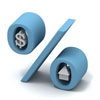Financial Issues & Answers for Everyone
A thorough analysis of today’s financial news—delivered weekly to your inbox or via social media. As part of Knowledge Bureau’s interactive network, the Report covers current issues on the tax and financial services landscape and provides a wide range of professional benefits, including access to peer-to-peer blogs, opinion polls, online lessons, and vital industry information from Canada’s only multi-disciplinary financial educator.
December 2025 Poll
It costs a lot more to go to work these days. Should the Canada Employment Credit of $1501 for 2026 be raised higher to account for this?

Wealth Preservation Strategies: Time to Shore up Knowledge on Inflation and Taxes
Inflation rose in June and again in July to reach the Bank of Canada’s 2% target inflation rate for the second time in the second consecutive quarter. Why is that important? This article explores the effect of inflation and taxes on prices and asset values, as well as why savers and their team of advisors from the tax and financial services need to pay attention at a time when recession fears are rising.

The DTC: When Someone in the Family is Very Sick
When someone in the family is very sick – and markedly restricted in their daily living activities — the tax system can help with some financial relief to pay for the costs of care. One of the most lucrative of the various tax provisions is the Disability Tax Credit (DTC). In fact, it can amount to over $2,000 a year in some cases. But, claiming it is subject to significant scrutiny by the CRA, so it’s worth a trip to see a DFA-Tax Services Specialist™ for help. Here’s what you need to know:

How to Withdraw Money from an RESP
Just over 2 million Canadians are enrolled in post-secondary schools in Canada and about half of them incur debt to get through school. According to a recent survey by Maclean's magazine, nearly two thirds of them don't have an RESP. Fortunately, at least a third of them do. Here's how withdrawals from an RESP work:

The Distinguished Advisor Conference Explores Economic Resilience in Uncertain Times
Is the next recession just around the corner? This week, as G7 leaders grappled* with both jittery stock markets and potential recessionary winds, the talented speakers at the 16th annual Distinguished Advisor Conference (DAC) are preparing to challenge financial advisors to consider how resilient their clients’ financial affairs will be in this time of political and economic uncertainty.

DAC Delegate in the News: Michelle Crouse, Wealth Advisor
Michelle Crouse, Wealth Advisor and regular attendee of the Distinguished Advisor Conference (DAC) shares some of the highlights and provides insight on how learning from the DAC speakers has helped her in her practice.

